Healthy Hair Tips to Make Your Hair Growth Faster
Are you dissatisfied by the way your hair looks? Are you recovering from a bout of prolonged illness or surgery that has badly damaged your hair? Has the mirror suddenly become your enemy? Don’t worry!
It is easy to improve the health of your hair, make it look fuller and livelier. In fact, here you are going to find some simple tips to do just that! Follow these healthy hair tips to get the hair you’ve always dreamt of!
1: Balanced Meals are the Secret to Healthy Hair
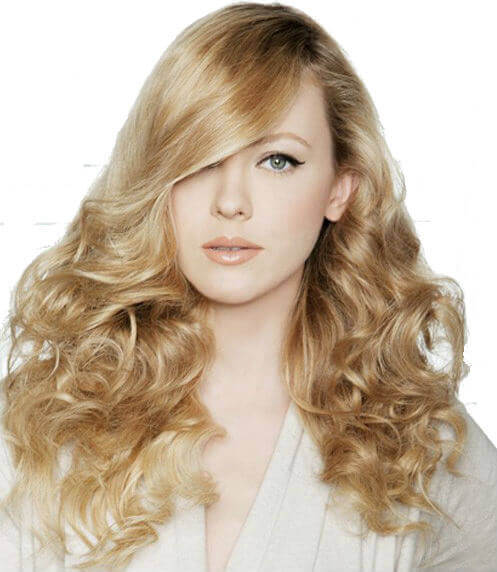 A key factor in having healthy hair is a healthy diet. It makes a big difference, and it is good for your general health. So go easy on the fast food, people! And eat more fresh fruit
A key factor in having healthy hair is a healthy diet. It makes a big difference, and it is good for your general health. So go easy on the fast food, people! And eat more fresh fruit
vegetables, meat, and fish. That way, you will be adding proteins, fat (the good kind), essential minerals, and vitamins to your diet. How does that work? Here’s how.
- Protein: Hair is largely keratin, which is a kind of protein. So it stands to reason that a lack of protein in your diet, or a loss of protein from your body would affect hair health. Anorexic people and those who go through extreme weight loss programs, tend to suffer from hair problems. Ensure that you have plenty of protein in your diet.
The kinds of proteins that you should eat are fish, lean meat such as chicken and turkey, and eggs, soy products, beans, and nuts. Your body can easily convert them to keratin, which contributes to hair health.
- Fat: You need fats too, of the right kind. Your body processes the vitamins and minerals in your food intake. Vitamins A, D, E, and K are particularly useful in promoting hair health. Fats help in doing that. Omega 3 fats, occurring in plant and fish oils are especially effective. Use plants based cooking oils, and avoid fat or butter. You might add some form of fish oil supplement or fish high in omega 3 fatty acids to your diet, as they help speed up hair follicle growth. Avoid saturated fats, trans fatty acids and hydrogenated fats.
- Iron and Zinc: Some minerals are essential for healthy hair growth. They are iron and zinc. Your diet should include a sufficient amount of foods that supply these minerals.
Iron is crucial for delivering oxygen to your cells, through the blood supply. It is a major element in blood. Lean meat can provide iron. If you are a vegetarian, we have got you covered too. Lentils and beans, and soy products such as edamame or tofu can give you all the iron you need.
Zinc is an essential trace element. It contributes to the repair of your tissues, including hair follicles. Follicles contain the root of the hair, and produce natural oils. Dark chocolate, cocoa powder, toasted wheat germ, oysters, and low fat roast beef provide sources for zinc.
- Vitamin C: Vitamin C is another crucial element in improving and maintaining hair health. Your body uses it to manufacture collagen, essential for hair growth. It also helps process iron for the body, so Vitamin C is as necessary as iron.
According to the figures released by the government, the recommended dosage for vitamin C is:
| Age | Vitamin C in mg/day |
| 9-13 years | 45 |
| 14-18 years | 70 |
| 19 years onwards | 90 |
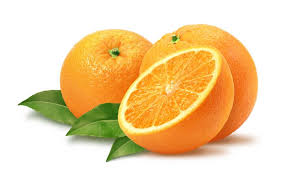 Unfortunately, your body cannot manufacture this vitamin. It must absorb Vitamin C from food and drink which have this vitamin. Citrus fruit, Cantaloupes, bell peppers, broccoli, and spinach are rich in Vitamin C.
Unfortunately, your body cannot manufacture this vitamin. It must absorb Vitamin C from food and drink which have this vitamin. Citrus fruit, Cantaloupes, bell peppers, broccoli, and spinach are rich in Vitamin C.
So, the aim is to have the perfect balance of all the essential elements in every meal. Because when you are eating healthy, it will naturally promote better hair growth!
2: Too much styling can be damaging for the Hair
 Styling can make your hair look good, but believe it or not, it is not good for your hair, so go easy with that. Some methods are worse than others are. For example:
Styling can make your hair look good, but believe it or not, it is not good for your hair, so go easy with that. Some methods are worse than others are. For example:
- Perming
- Crimping
- Straightening
- Curling
- Coloring
- Bleaching
These are absolute torture for your hair and should be done sparingly. The heat and chemicals used in these processes tend to damage the structure of your hair, causing thinning and loss. Even blow driers can singe your hair, so don’t use them unless it is unavoidable, and try to dry your hair naturally.
Now let’s look at the unavoidable styling facts:
- Combing Hair: You may have heard that 100 brush strokes are good for your hair. It is a myth. Excessive brushing can actually increase hair loss. Use the brush and comb sparingly.
Your hair is actually weaker when it is wet. Combing wet hair is not good for it. Wait for your hair to get almost dry, and always use a wide toothed comb.
In addition, if tangles are your problem, using a detangling spray or a leave-in conditioner while your hair is still damp can easily detangle your locks.
- Rubber Band: To fasten or tie your long hair, don’t use rubber bands. Use a hair tie or scrunchie. Rubber bands have a tendency to stick to your hair and thus exert extra pull. Hair ties don’t do that.
- Stress on Hair: Don’t subject your hair to unnecessary stress. Styles such as cornrows and tight ponytails pull at the hair, and this pull goes all the way back to the follicles. Go for loose hairstyles that are easier on your hair.
- Hair Cleaning: You ought to be especially careful about keeping your hair clean. Use only good products to clean your hair. There are no hard and fast rules about how frequently you should wash your hair.A shampoo followed by a conditioner 3-4 times a week is a good average. Overdoing it removes the natural oils that keep your scalp and hair healthy. People with coarse dry hair should wash their hair no more than 2-3 times a week, whereas those with very oily skin should go for a higher than the 3-4 per week average. While preserving the natural oil is essential, a buildup can be harmful.
As far as choosing products are concerned, the best are those that contain natural ingredients. Coconut, jojoba, avocado and olive oil used in moderation help retain moisture and oils, and prevent hair damage.
- Hair Cutting: There is a belief that cutting hair makes it grow faster. This too is a myth. However, it does promote hair growth by getting rid of split ends. The rate of hair growth depends upon how healthy it is. Normal healthy hair grows from ½ inch to 5/8 inch per month. Most stylists advocate a haircut every 6-10 weeks. How much you cut is entirely up to you. If you want your hair to grow longer, for instance, then you can cut off ¼-1/2 inch every 6-10 weeks and still stay ahead.
3: How Exercise and Stress Affect Hair Growth
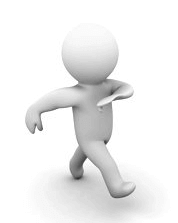 So far, we have been discussing hair health almost exclusively. However, it is important to understand that physical health and hair health go hand in hand. A healthy lifestyle will boost hair health. Your body is a finely tuned machine, and a fine balance is necessary to keep it in tune. Too much or too little exercise, sleep, or eating can upset the balance, and affect both your physical and hair health.
So far, we have been discussing hair health almost exclusively. However, it is important to understand that physical health and hair health go hand in hand. A healthy lifestyle will boost hair health. Your body is a finely tuned machine, and a fine balance is necessary to keep it in tune. Too much or too little exercise, sleep, or eating can upset the balance, and affect both your physical and hair health.
Certain situations are unavoidable and they can cause severe stress, such as physical or mental trauma.
- Physical Stress: Avoid that which is avoidable. Handle the unavoidable. Severe injuries, surgery, and other physical trauma can stunt hair growth. That is normal and nothing to worry about. Just give it time. As soon as your body has healed itself, your hair problems will start to get resolved.
- Emotional Stress: Too much of emotional stress can work on your body in unexpected ways leading to adverse effects on your health. Some emotional stress is unavoidable in our day-to-day living, but you must learn to combat it in different ways.
At times of stress, your body will go into a sort of survival mode, in which it will produce only those things that it considers as essential. This can affect hair growth.
At other times, when your body gets enough nutrition, exercise and rest it can build up reserves and hair growth and protection will get a boost. Maintain a proper diet and a healthy lifestyle, and your hair will mostly take care of itself.
One interesting way to de-stress is exercise. Vigorous exercise – walking, going to the gym, lifting weights, jogging and swimming – not only helps you relax, but also:
- Makes you sleep better.
- Enables your body to absorb more vitamins and minerals from the food you eat.
- Increases blood circulation, keeping you healthy, and
- Act as an antidote to stress!
4: Health Issues That Could Affect Hair Growth
Certain health issues could also spell bad news for your hair follicles. This is true for both men and women.
Since in these cases the hair fall is a result of some other deficiency, targeting the problem at the root is seen to have promoted healthy hair growth.
However, most medical issues will be difficult to treat without the help of a doctor.
Consulting Your Doctor:
Often hair fall does not seem to go away even after a lot of the usual treatments. This could be because of underlying medical conditions. Some such conditions can be:
- hormone imbalances
- low blood count
- thyroid conditions
Hair fall could also be a side effect of:
- Acne medication
- anticlotting drugs
- birth control pills
- antidepressants
- steroids
If you suspect this is because of some undiagnosed medical condition, or the treatment of it, you should probably schedule an appointment with your doctor soon.
On the other hand, over the counter treatment options for hair fall can also interfere with other health conditions and medications. So be on the safe side and ask your doctor’s advice before starting any of them.
So far as health concerns affecting hair health goes, even infections could be causing your hair fall…
Check Infection: Since hair grows from your scalp, the most common infection affecting hair growth adversely is one that affects primarily the scalp. Ringworm of folliculitis is the usual cause for such infections. The infection makes the hair follicles unhealthy.
The best way to diagnose such an infection is to get it checked. Once identified, all you need is to follow the doctor’s prescription and use anti-fungal topical scalp medicines. Once these medicines have eliminated the infection, your hair growth should get back to normal. If it doesn’t, this is a safe time to use the usual anti-hair fall treatment options.
Check Hormonal Imbalances: Expanding a little on the hormonal imbalances, it should first be accepted that this could affect either men or women. Natural causes can include:
- High testosterone
- Menopause
- Andropause
- Pregnancy
In the case of pregnant women, little can be done and the problem will get rectified naturally. However, in the other cases, it is often seen that an excess of a specific male hormone called androgen or DHT is causing hair loss. The treatment differs in men and women:
- For women, androgen receptor inhibitors are prescribed to reduce the androgen levels.
- For men, Finasteride or Propecia is administered. They stop the action of a particular enzyme responsible for the transformation of testosterone into DHT. Results show that Propecia can increase hair growth by up to 60%.
And now let’s look at some more remedies…
5: Over-the-Counter Remedies
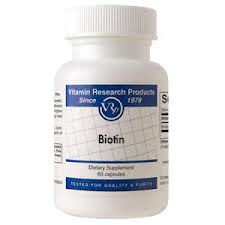 Quite a few commercial products are touted as the ultimate solutions to hair fall problems. But as you already know, the problem needs a much more holistic approach.
Quite a few commercial products are touted as the ultimate solutions to hair fall problems. But as you already know, the problem needs a much more holistic approach.
However, in general here are a few products that have delivered satisfactory results in some people:
- Biotin
– It is actually a B vitamin that enhances the growth of both hair and nails. In fact, biotin users have said that it can also help to lessen acne and make your skin healthy. However, whatever product you buy will come with a maximum dosage and you should not exceed this limit.
- MSM (Methylsulfonylmethane
) – This is a natural compound found in certain plant species. It is supposed to decrease the rate of shedding of hair, and rejuvenate it to grow longer, thicker and shinier. MSM is said to build collagen and help repair damaged hair tissues.
6: Natural and Home Remedies
No matter what the problem, nature probably has a solution to most of them. And so it is for hair fall as well. Find here a list of home remedies to try out.
- Take the gel from 3 fresh Aloe Vera leaves, mix in some honey and apply to your scalp. Leave it on for 20 minutes before washing it off.
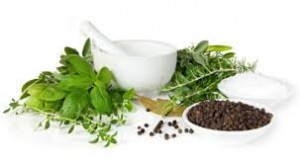
- Take 1 tsp. full each of wheat germ, brewer’s yeast, soya lecithin, honey, and yogurt. Take this mix at breakfast.
- Another thing to try out is to use rosemary water to wash your hair daily. You can also get a shampoo that contains rosemary water.
- And now for another hair pack: In a blender process 1 tomato with 1 tbsp. of pure olive oil. Mix in some aloe gel and heat the mixture till it is warm. Apply this mask to the scalp and keep it on for as long as possible before washing off.
However, remember, that poisons are also derived from plants. So don’t use indiscriminately. Discontinue at the first sign of unpleasant results!
And to wrap things up, at the end of our discussion about Healthy Hair Tips, let’s do a little recap:
- Too much stress may cause you to find some extra strands in your hairbrush, but it cannot be the reason for you to go completely bald. So stop worrying, it just makes the stress worse!
- Loose hairstyles are better than tight ones –you don’t want to stress your hair follicles causing the hair strands to break off and bend. So, a loose ponytail is better than a tight bun.
- Steroids are bad for your hair because they mimic natural hormones and can make your hair fall out – permanently.
- To make hair appear more voluminous than it is, dry it upside-down.
- Don’t comb wet hair as you risk damaging it. If you absolutely need to, be very careful.
- Any imbalance of the thyroid hormone causes hair and skin to lose their natural moisture. If your hair seems to be extra dry and nothing seems to work, then your hormones could be playing culprit and you should see a doctor.
- Store bought shampoos tent to be very heavy o your hair. To avoid leaving residues, dissolve the shampoo in a bit of water before applying it to your hair.
- A small amount of shampoo dissolved in some water actually makes your hair silkier.
- Oiling your hair 2-3 hours before shampooing is one of the best remedies for dry hair.
- Always go for herbal products rather than chemical-based ones
With these healthy hair tips, thick, shiny and healthy tresses are well within your reach… For more help and such exciting and proven tips, do check out our other pages!
Till the next time, best of luck!
https://allblogroll.com/healthy-hair-tips-hair-growth-faster/https://allblogroll.com/wp-content/uploads/2017/09/healthy-hair-tips-13.jpghttps://allblogroll.com/wp-content/uploads/2017/09/healthy-hair-tips-13-150x150.jpgHealthHair,Health,Healthly,Healthy LivingAre you dissatisfied by the way your hair looks? Are you recovering from a bout of prolonged illness or surgery that has badly damaged your hair? Has the mirror suddenly become your enemy? Don’t worry!It is easy to improve the health of your hair, make it look fuller and...Anatoliy SimeonovAnatoliy Simeonovanatoliy.simeonov@gmail.comAdministratorAll blogroll - The informative website


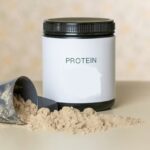


Leave a Reply